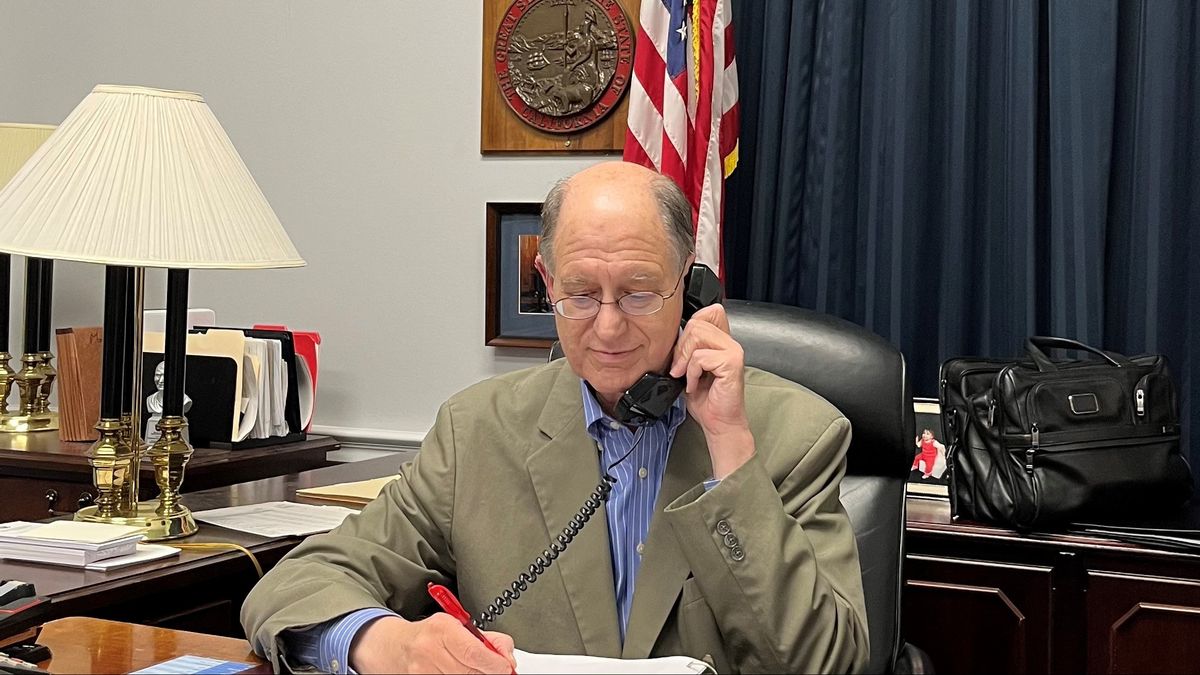JAKARTA - United States Congressor Brad Sherman, who has been seen as a crypto skeptic, has accused crypto-billionaires of slowing down cryptocurrency regulations that are urgently needed.
In a November 13 statement, he discussed the collapse of the crypto exchange FTX. Sherman said the exchange boom had shown the need for regulators to take immediate and aggressive action.
This week's sudden collapse from one of the world's largest cryptocurrency companies has been a dramatic demonstration of the risks inherent in digital assets and critical weaknesses in the industry growing around them, Sherman said.
"For years I have advocated Congress and federal regulators to take an aggressive approach in dealing with many threats to our society posed by cryptocurrencies," he was quoted as saying by Cointelegraph.
Sherman announced his plans to work with his US Congressional counterpart to examine federal law options, which he hopes can be done without the influence of financial members in the cryptocurrency industry.
"Until now, the efforts of crypto billionaires bros to prevent meaningful laws by flooding Washington with millions of dollars in campaign contributions and lobbying spending have been effective," he said.
"I believe it is now more important than ever that the SEC is taking firm action to end a gray region of regulation where the crypto industry has been operating," the senator added.
Meanwhile, Sherman referred directly to former FTX CEO Sam Bankman-Fried and his political donations to the Democratic Party, he also called Ryan Salame, the co-CEO of FTX, which contributed funds to the Republican Party in 2022.
Bankman-Fried has also reportedly donated 39.8 million US dollars (Rp 615.8 billion) to the recent US part-time elections in 2022, which it says are distributed to Democrats and Republicans. The figure of nearly $40 million makes it the sixth largest contributor.
While Sherman has recommended "aggressive approximation" to crypto regulation, Thomas Hook, a Professor on Cryptocurrency Regulation at the Boston University School of Law, recently told Cointelegraph that regulators should look for ways to implement "sense sense regulations: "
The collapse of #FTX, one of the largest cryptocurrency firms in the world, is a dramatic demonstration of both the inherent risks of digital assets and the critical weaknesses in the industry that has grown up around them. Read my full statement ⬇️https://t.co/rcALYHoM2U
— Congressman Brad Sherman (@BradSherman) November 13, 2022
The [Regulator] reacts to an industry that continues to grow but excessive regulation can hinder that innovation as immature regulation can create problems twice. First, it can limit the ability of US consumers to participate in the cryptocurrency ecosystem and it can also encourage this business into underregulated jurisdictions, "said Hook.
"This actually creates more risks for customers because it puts them in a position to deal with institutions that are less organized to participate in the ecosystem," he added.
His comments, made before the collapse of the FTX crypto exchange. Cointelegraph has contacted Hook to understand whether his position has changed with respect to new events.
Meanwhile, venture capitalist Shark Tank and millionaire Kevin O'Leary stated in an November 11 interview with CNBC that US regulators "need to start with one thing" rather than arrange everything at once, while investors recommend Congress start with Stablecoin Transparency Rules.
O'Leary said that given the recent events in FTX, he believes institutional investors will likely delay the use of "serious capital" into new investments until a legal regulatory framework is established.
"It will signal to everyone around the world that regulators in the United States are using crypto, starting to apply rules, installing safety fences, no one will play ball in this space at an institutional level with serious capital, until we finish it," said O'Leary.
Among the most famous cryptocurrency bills that have been introduced to the US Congress including the 2021 Central Bank Digital Currency Study Act, the 2022 Digital Commodity Consumer Protection Act (DCCPA), the Stablecoin Transparency Law and the Cryptocurrency Tax Expenditure Act.
Future bills will centre around President Joe Biden's executive order in March 2022, which will include bills aimed at increasing consumer and investor protection, promoting financial stability, fighting illicit finance and increasing the United States' position in the global financial system, financial inclusion, and innovation responsibilities.
The English, Chinese, Japanese, Arabic, and French versions are automatically generated by the AI. So there may still be inaccuracies in translating, please always see Indonesian as our main language. (system supported by DigitalSiber.id)











